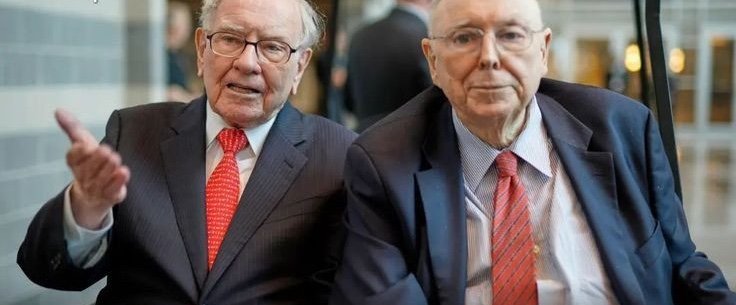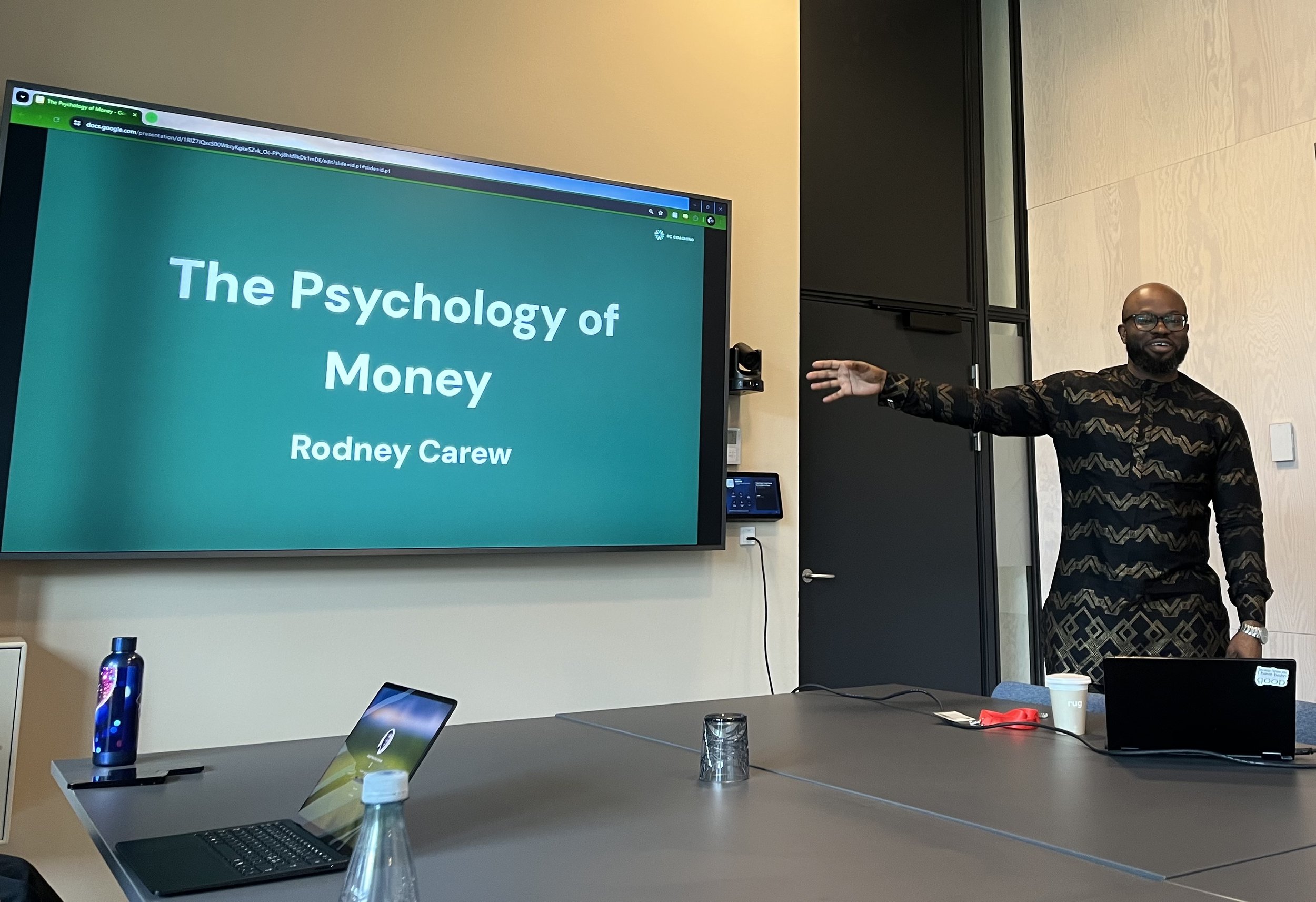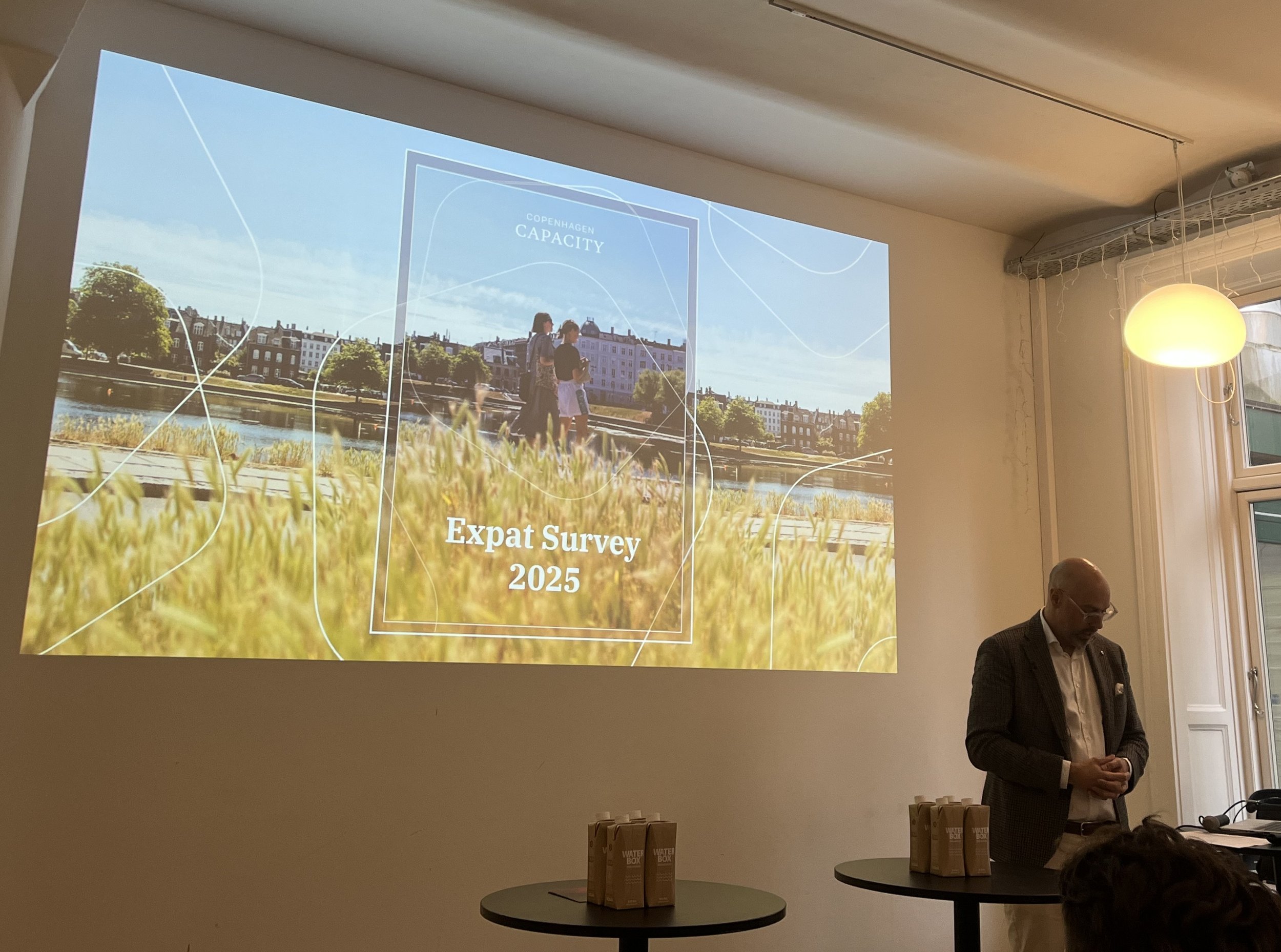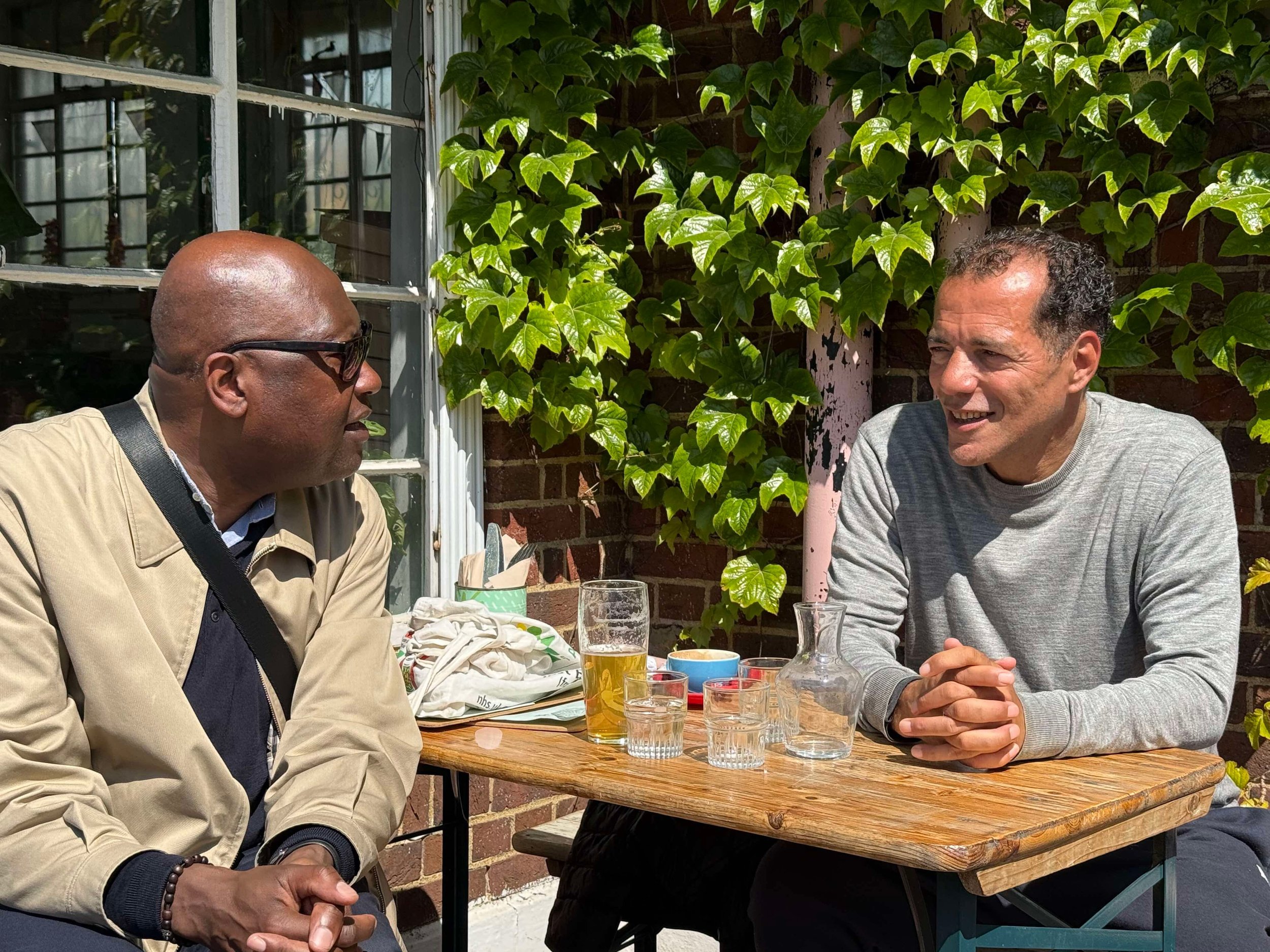It is important to consider that cultural norms and backgrounds, particularly among minorities in Denmark, often correlate with lower socio-economic status. I think that this should be factored into our considerations, as talent should never be restricted by a lack of opportunity. Many individuals from diverse backgrounds deserve to be further ahead in their careers. Talent must be given opportunities, and access must be provided for minorities and individuals from diverse cultural backgrounds.
Giving energy at work
Psychological bravery is the bridge that allows authentic dialogue, even when the room feels unsafe. It’s the quiet courage to speak the truth when it feels risky. It’s the act of not shrinking, and trusting my own voice even when it shakes. Over the years, whether facilitating dialogue, supporting systems of change, or mentoring others, I have learned something important: safety and bravery are not opposites. They need each other.
Safety creates the foundation for bravery to flourish. And bravery — especially from those in positions of power — is what helps build lasting safety for others. I often ask myself: “Whose safety are we protecting, and who is paying the price for it?” It’s a question worth holding onto as we seek to build more inclusive, courageous spaces.
Navigating a minefield
I work with leaders and senior executives to help them lead employees from marginalised and underrepresented backgrounds with greater empathy and confidence. I'm not a performer, I’m genuine, grounded, and deeply curious about people. I build meaningful connections because I truly care about getting to know the individuals I work with. This curiosity has shaped my life and career. I've been fortunate to work across learning and development, consulting, DEI implementation, and coaching. I create a safe, non-judgmental space where people can take off their masks, speak honestly, and share what’s truly on their hearts, knowing they will be met with respect and understanding.
Deep connections
My mission is to support leaders and senior executives in creating inclusive environments where employees from marginalised and underrepresented backgrounds can thrive. Curiosity about people has shaped my life and career, I build deep, genuine connections because I care deeply about learning from and understanding those I work with. With a background in learning and development, consulting, DEI implementation, and coaching, I bring a multifaceted approach to leadership development. I create safe, judgment-free spaces where people can remove their masks, speak openly, and feel truly seen and heard.
““A bird does not sing because it has an answer. It sings because it has a song.”
”
EQ is interesting
Emotional intelligence (EQ) is so much more than just managing your emotions. It’s the ability to pause when something triggers you and ask, “What deeper pain or belief is being touched right now?” EQ is the understanding that life constantly tests us, and that not everything is meant to be held onto. It’s not about suppressing your feelings; it’s about facing them with honesty, healing what hurts, and turning your struggles into strength.
Human tendency
In today’s complex and interconnected world, the organisations that thrive are those that recognise diversity not as a checkbox, but as a strategic advantage. Inclusive leadership means more than inviting different voices to the table, it means actively listening to them, valuing them, and adapting in response. The future belongs to companies that embrace difference as a strength, where leaders have the courage to be vulnerable and the emotional intelligence to foster psychological safety. These leaders understand that innovation flourishes when people feel safe to take risks, share ideas, and be their authentic selves, without fear of judgment or exclusion. I think this isn’t just about doing what’s right; it’s about doing what works.
Being different is good
Embracing individuality is essential for personal growth and contributes to the richness of society. Differences in perspectives, experiences, and backgrounds foster creativity, innovation, and understanding among people.
I think there are three benefits of differentiation:
It’s good for consumers because it offers more meaningful choice.
It’s good for businesses because it helps them stand out and avoid price wars with generic competitors.
It strengthens overall resilience by reducing dependency on commoditised offerings and enabling long-term brand loyalty.
A rude awakening
I have discovered something that’s both simple and radical: the biggest shifts in business don’t always come from data, strategy, or even a brilliant product. Often, they come from noticing what others overlook, from trusting your gut when logic reaches its limits, from asking not just “What’s the answer?” but “What am I missing?” I think beneath every decision, every brand, and every market lies one powerful, often hidden variable: human behaviour.
ICF ACC
I passed the International Coaching Federation (ICF) exam and have earned the ICF ACC credential.
What does it mean?
It means that I hold the entry-level credential, signifying that I have completed necessary training, coaching hours, and mentoring, and have demonstrated knowledge of the ICF Core Competencies, Code of Ethics, and definition of coaching.
Look up
c/o Morten Vammen
If you promise to actively participate then I will promise not to waste your time. To quote William Shakespeare - "Something is rotten in the state of Denmark" - would be a disservice.
““Do well by doing better and do better by doing well.””
Rhythm versus ritual
Leadership development is often seen as a box to tick, an inspiring workshop here, a high-impact coaching session there. Research consistently shows that without deliberate follow-through, even the most well-designed training programs fail to drive lasting behavioural change. So the real question becomes: How do leaders ensure they are applying what they have learned?
I think for leadership training to stick, feedback must become part of the culture, not just an annual event. Leadership isn't about perfection, it's about progress, and therefore, progress is far easier to track when you invite honest input from those around you.
Did you know?
Some critics argue that “equity” leads to reverse discrimination, suggesting it prioritises certain groups over merit. In response to evolving conversations around diversity efforts, JPMorgan has rebranded its DEI program to Diversity, Opportunity, and Inclusion (DOI) replacing the term equity with opportunity. Despite the rebrand, JPMorgan’s employee resource groups (ERGs) will continue to focus on engagement, cultural celebrations, education, and historical observances.
From my perspective, DEI is meant for everyone. Unfortunately, it’s often misunderstood and has been mischaracterised as part of a so-called “woke” agenda. I think that organisations that truly prioritise inclusion and foster a genuine sense of belonging will remain the best places to work, for everyone.
Empathy is a key driver
No one tells you how hard it is to rewire your brain to allow amazing things to happen after experiencing so much trauma and pain. We can’t change people; we can only invite them to reflect on their behaviour. As a coach who’s human centric, I want to build a bridge towards personal perspectives of being a human-being. No one really prepares you for how challenging it is to rewire your mind to embrace possibility after living through pain or trauma.
Healing takes time, patience, and a deep willingness to imagine something better. As much as we may want to change others, the truth is, we can’t. What we can do is invite reflection, offer perspective, and lead with empathy. As a human-centric coach, my aim is to build bridges towards greater self-awareness, towards others, and ultimately, towards what it truly means to be human.
Navigating unfamiliar terrain
Being in Denmark is like being the main character in “Alice in Wonderland.” Just like Alice, I’m propelled by curiosity and an insatiable appetite for adventure. Every street, conversation, and cultural nuance here challenges me to think differently, to let go of what I knew and embrace what’s unfolding. Denmark isn’t just a place I live; it’s a landscape of puzzles, paradoxes, and possibilities. Alice has unconventional thinking and the ability to adapt to strange situations which mirrors my independent and unconventional nature.
We also belong here
When we assert our dignity, intelligence, or leadership, we are often labelled "uppity" or "difficult" which is a form of social policing meant to put us "back in our place." There are a lot of painful and persistent truths that resonates deeply with many people of colour, especially Black and brown individuals navigating spaces where systemic bias still thrives. This is why spaces that affirm our worth, celebrate our excellence, and centre our voices, for example, the Brotherhood for Professionals of Color (BPoC) are so critical. They don’t just counter the false narratives; they help us heal, thrive, and lead without apology.
““Sometimes I want to treat people how they treat me. But l can’t because that’s not my character.“”
A philosophy of becoming
Strategy isn’t just a plan, it’s a mindset.
Who is your business becoming?
Who are you becoming as a leader?
What kind of world are we heading into?
In 1997, my brother-in-law saw it coming: a more connected world, faster internet, and a willingness to trade almost anything, for convenience and connection. The big question now is: What are you seeing ahead?
The definition of wealth
We all trade in three currencies: knowledge, time and money. When we want to gain knowledge, we must invest either time or money, or both. I think of it this way:
“Once you carry your own water, you’ll understand the value of every drop.”
Learning comes at a cost and the value it returns is priceless.
Driving performance
c/o HBR.org (PM Images/Getty Images)
Translating performance into metrics doesn’t always lead to the kind of breakthrough growth organisations are aiming for. There’s an important distinction between a performance culture and a growth culture. In many workplaces, performance culture is celebrated and often, it shows up as checklists, operational KPIs, and a strong focus on sticking to the plan. While that can drive consistency, it may also limit innovation and agility. I think in today’s rapidly changing world, what most organisations truly need is a growth culture, one that embraces change, encourages experimentation, and views adaptability not as a risk, but as a strength.
Plan for change
How often have you been in a meeting that started with the question, “Are we on track to fulfil our plan?”
In many organisations, governance structures reward sticking to the plan. What if the plan is no longer fit for purpose? It’s not that the original plan was wrong, it was mave been the right approach based on what we knew at the time, but circumstances change. I think real leadership lies in recognising when to adapt. The ability to shift course in response to new information isn’t a failure of planning, it’s a sign of maturity, agility, and good judgement.
Blushing on Friday
I received the below testimonial from a young man from the Brotherhood for Professionals of Color (BPoC). I am extremely humbled and grateful for the kind words.
““You are an inspiration in your ability to navigate the delicate balance between integrating into Western culture and staying grounded in the core essence of what it means to be a Black man. Your journey reflects both strength and authenticity, showing that embracing one world does not require the erasure of another.””





















